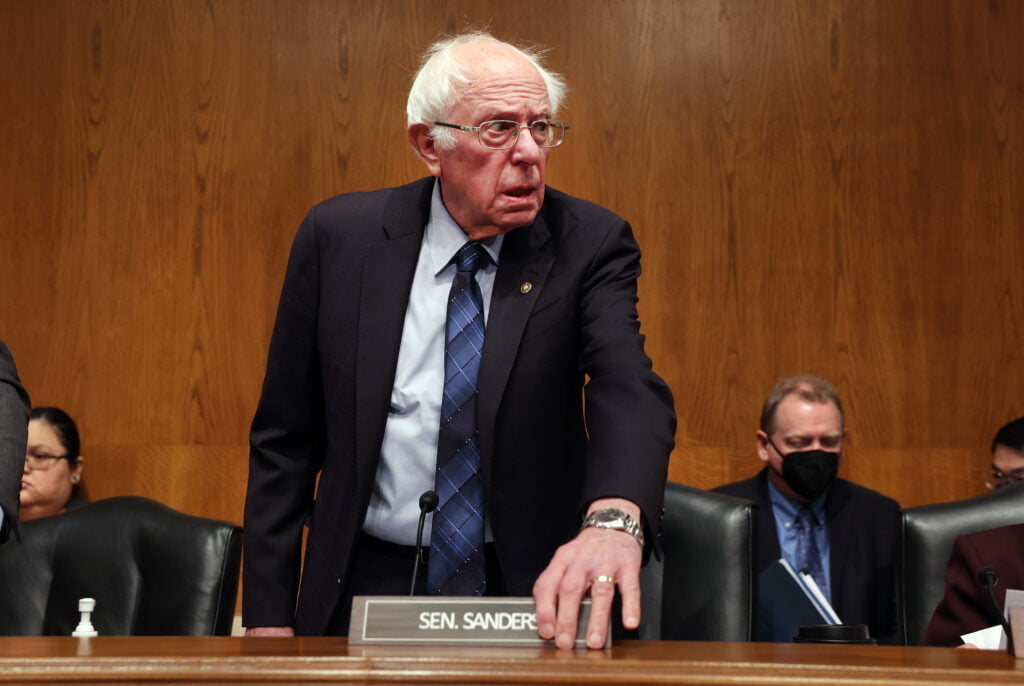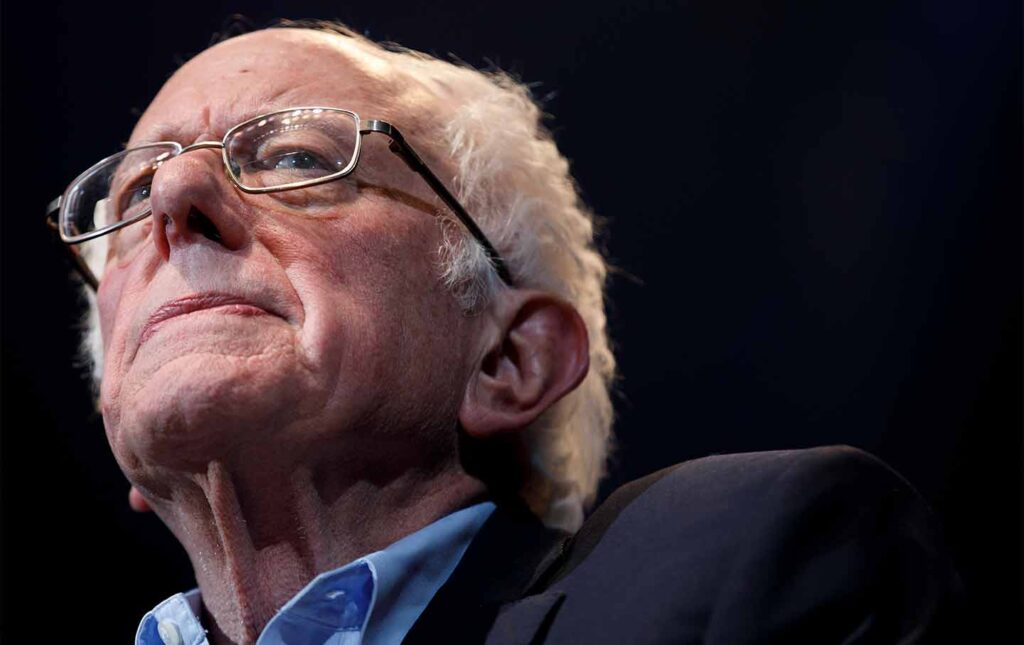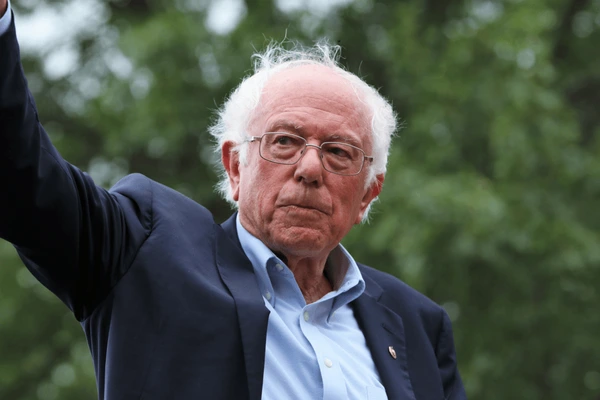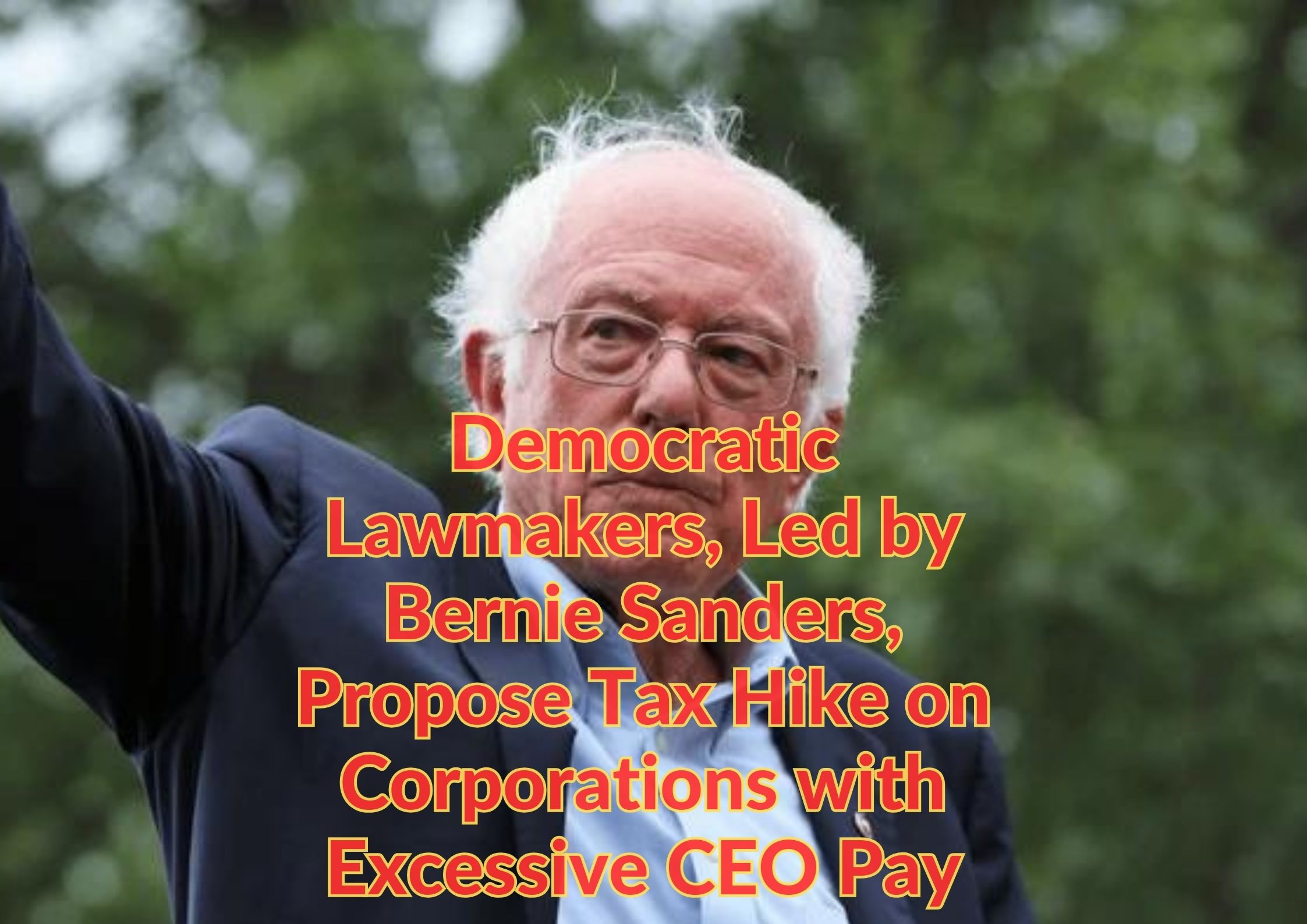Democratic Lawmakers, Led by Bernie Sanders, Propose Tax Hike on Corporations with Excessive CEO Pay
In a bold move against what they perceive as corporate excess, a group of Democratic lawmakers, spearheaded by US Senator Bernie Sanders, is advocating for a tax increase on companies with CEO salaries exceeding 50 times that of their typical workers. The proposed legislation aims to curb what they label as “corporate greed” and address the widening gap between executive compensation and average employee wages.

|Credit: Getty Images
Copyright: 2023 Getty Images
The Union-Backed Proposal
The lawmakers are championing a union-backed proposal that not only targets exorbitant CEO pay but also seeks to prevent companies from circumventing the tax hike by relying on contractors instead of employees. The bill is a strategic attempt to address income inequality and ensure that corporations contribute their fair share to the U.S. economy.
Potential Impact on Corporate Giants
This proposed tax increase could significantly affect major corporations such as Walmart, Alphabet’s Google, Home Depot, JPMorgan Chase, Nike, and McDonald’s. The legislation could generate $150 billion in US revenue over the next decade, providing a substantial financial boost to government coffers.

Copyright: 2020 Getty Images
Reversing the Trend
The senators argue that the bill could incentivize companies to reevaluate their compensation structures. By raising workers’ pay and reducing CEO salaries, corporations could avoid the tax hike while simultaneously addressing the growing discontent over income inequality.
Public Outcry and Bipartisan Support
Citing widespread public dissatisfaction with the vast disparities in income, the lawmakers assert that their proposal has support from Americans across the political spectrum. Senator Sanders, known for his advocacy on economic issues, aligns with the Democrats but has emphasized the non-partisan nature of addressing this critical concern.
Legislative Challenges and Potential Roadblocks
Despite the Democrats’ narrow control in the Senate, the bill would require a 60-vote majority to pass. The uphill battle intensifies in the Republican-controlled House of Representatives, adding complexity to the legislative process. With USA elections looming, the economy becomes a pivotal factor, influencing the prospects of passing such a bill during President Joe Biden’s bid for re-election.

| Credit: Getty Images
Copyright: 2023 Getty Images
Potential Economic Ramifications
While the proposed tax increase aims to generate significant revenue, critics argue that it could have unintended consequences for economic growth. Some business leaders contend that such measures may stifle investment, job creation, and overall corporate productivity. Striking a delicate balance between addressing income inequality and maintaining a business-friendly environment remains a key challenge for lawmakers.
Corporate Responses and Adaptations
The legislation may prompt corporations to reevaluate their compensation strategies and adopt more equitable practices. To avoid the tax hike, companies might explore options such as redistributing executive salaries, implementing employee wage increases, or adopting innovative approaches to align CEO pay with overall workforce compensation.
Global Implications and Corporate Governance
The proposed tax increase places the United States in the global spotlight on issues of income disparity. It raises questions about whether other nations will follow suit and introduces a broader conversation about corporate governance. International companies with a significant presence in the US must navigate potential tax regulation changes and adjust their global operations accordingly.

|Credit: Rich Koele // Shutterstock
Copyright: Rich Koele
Conclusion
As the legislation progresses through the Senate and House of Representatives, the implications for businesses, workers, and the overall economy remain uncertain. The proposed tax hike reflects a broader societal debate on wealth distribution and corporate responsibility, underscoring the complexities of addressing economic disparities in a politically charged landscape. The outcome of this legislative endeavour will undoubtedly shape the future trajectory of corporate practices and the US economy.
For more latest trendy news like this visit our Latest News page. Please visit our Contact Us page in the footer menu to contact us. You can check out our Best Deals page for various needy offers and deals of the day. To know more about us visit the About Us page in the footer menu. In the footer menu, you can also read our Disclaimer, Affiliation Disclosure and FAQs page. You can also find the Webstory Page in the footer menu to see our latest published web stories.

